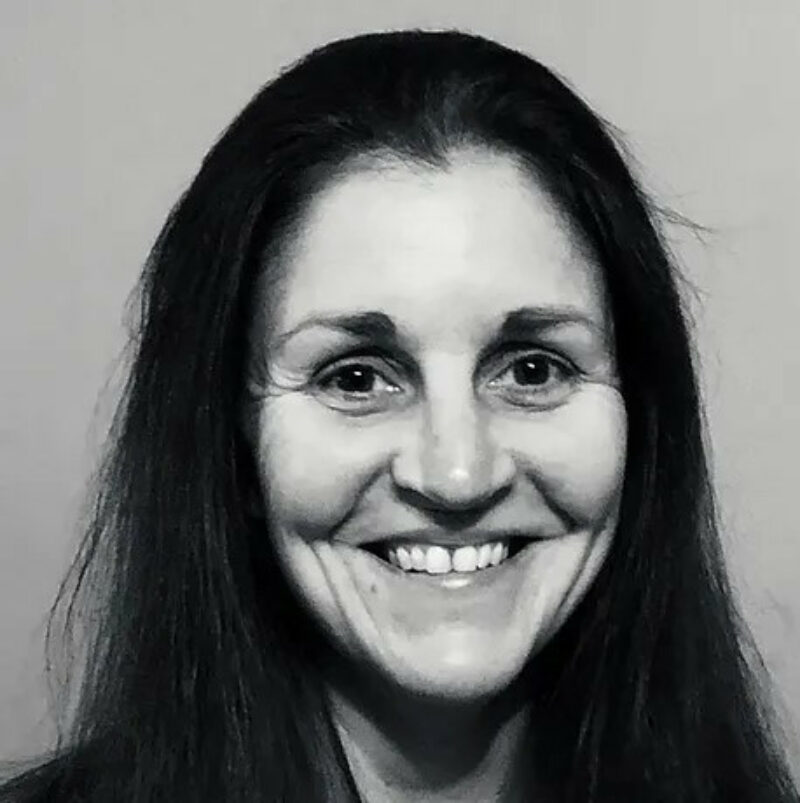Your CPD-accredited IFW Roundtable at 11am, on Thursday 11th Jan offers the chance to discover different listening styles as coach trainer Becca Timmins introduces discussion topic: How to listen deeply to empower client thinking.
Book your free space at the IFW Roundtable.
Becca has worked in the Financial Planning sector for over 20 years, with 15 of those as Operations Director at Financial Planning firm, Emery Little. Whilst in that role, she discovered the Thinking Environment, and slowly implemented this as a way of being and working together across the team. Subsequently, she has trained with Time to Think as a Coach and Facilitator, and is now qualified to teach those skills to others as well. The Thinking Environment has become core to the culture at Emery Little, transforming the business from a top-down leadership structure, to one of high trust, high engagement, and great collaboration.
This transformation was so inspiring that a few years ago Becca started Coaching, and teaching Thinking Environment skills to other teams through her own business, When We Think, alongside her Emery Little role. In 2023, she took a step back from Operations at Emery Little, as When We Think grows and develops.
Becca says she has always been driven by helping others to uncover and realise their potential, and now thoroughly enjoys working with a wider range of people and businesses to do just that.
Becca has created a simple quiz to help you become aware of your listening style. It just takes a few moments. You can complete it here.
I chatted with Becca to find out what keeps her motivated and enthused about the power of silence.
How would you summarise your passions, both in and out of work?
First and foremost, my family! I’m mum to three boys so that keeps me on my toes.
In my work, I’m passionate about helping individuals and organisations to see and realise their own potential. This starts, always, with really deeply listening to people, and helping them learn to listen well to each other.
How did you come to transition from operations roles in the financial services sector to launching When We Think?
It’s been a gradual process! The work I do at When We Think really grew and flourished out of what I saw work with my team.
I got to a point in my life where the more Compliance, Tech and other practical sides of the Ops role weren’t where I felt my real passion lay. I wanted to focus on people and bring the transformational work that we had implemented at Emery Little to the wider world.
In 2023 I’ve stepped right out of Ops and it’s been liberating. I have worked with more teams and individuals across the sector and developed a new coaching programme for Financial Planners too.
How did you discover the power of silence?
I read Time to Think: Listening to Ignite the Human Mind by Nancy Kline about 10 years ago and it really made me stop and think about how much we interrupt each other and the massive detrimental impact of that on good thinking. Her work interested me so much that it’s what I have since trained in, and brought to the culture at Emery Little too, which has honestly been transformative.
All of my work now carries a fundamental promise: while you’re thinking, I won’t interrupt you. It’s honestly amazing the impact that has in teams, on engagement, input, how safe people feel to speak up, and loads more.
But I guess where it’s most profound is in coaching conversations. I’ve had to get very comfortable with silence, and just observing the magic that happens in people’s thinking when I shut up and get out of the way is enough to keep me doing it!
Why do you think silence can feel so awkward in conversations? How do you personally overcome that?
I honestly don’t know. Maybe we think nothing is happening when things go silent. I overcome it now with the knowledge that LOADS happens in someone’s silence. We think about 10 times faster than we can speak – so imagine all that thinking you’re going to trample all over if you speak while someone else is following a train of thought.
I think we naturally sense when a pause turns into a stop for someone – we just don’t usually pay attention because we’re too keen to jump in and offer our own thoughts.
What do you understand by the term Financial Wellbeing?
I think first and foremost it’s about understanding what you want your life to look like, what makes you happy, what brings you joy in fact! The stuff that’s REALLY important I mean, way beyond the material stuff. Then using money as a means to support that life. Never the other way around.
And I know that comes from a place of being very privileged that I am able to think that way.
What are you doing to advance your own financial wellbeing?
First and foremost for me, it’s about gratitude for what I’ve got. My family have all that we need and a lot of what we want.
I’ve also always been very debt averse, and always had a rainy day fund. That helps give me a great deal of peace of mind.
What do you hope people gain by attending the January IFW Roundtable discussion?
A new perspective I think, and maybe a realisation of the damage interruption can do and a new found inspiration for staying quiet for longer!

